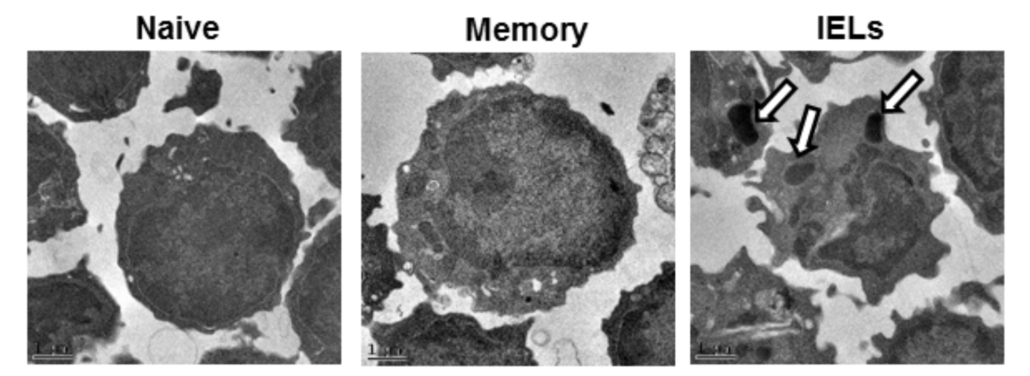
Researchers identify T cell guardians of the intestine
Special immune cells that protect the lining of the gut remain in a semi-active state, ready to fend off a pathogen at any moment, thanks to the composition of their mitochondrial membrane, a new study reveals.
Intraepithelial lymphocytes (IELs), which protect the intestinal lining from pathogen invasion, remain in a semi-active state without release of cytokines, but ready to fend off a pathogen at any moment, thanks to the composition of their mitochondrial membrane, a new study reveals.
In Science Immunology, pela Konjar and colleagues from University of Lisbon report that IELs derive their unique metabolic abilities from altered mitochondrial membrane proteins that are affected by special phospholipids called cardiolipins. When the researchers infected mice with the parasite Eimeria vermiformis, which triggers gut inflammation, cardiolipin composition was altered to support the full activation of IELs, initiating the cells’ proliferation and pathogen-fighting response. Vice versa, altered cardiolipin levels could also restrict IEL proliferation by blocking the generation of energy levels required for full-blown activation of the cells.
The authors say this metabolic mechanism is in line with the need for IELs to act swiftly without spending too much energy, and to curb excessive immune responses.



 adobe.stock.com - ipopba
adobe.stock.com - ipopba BioDlink
BioDlink